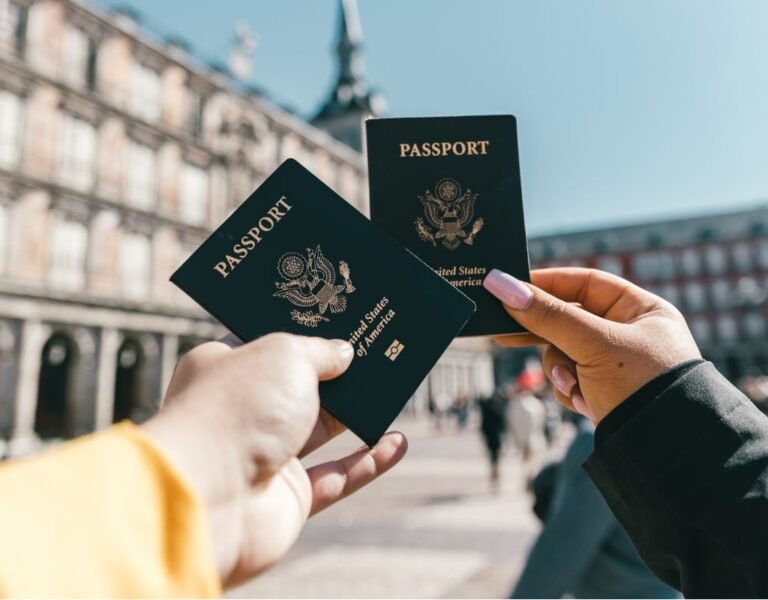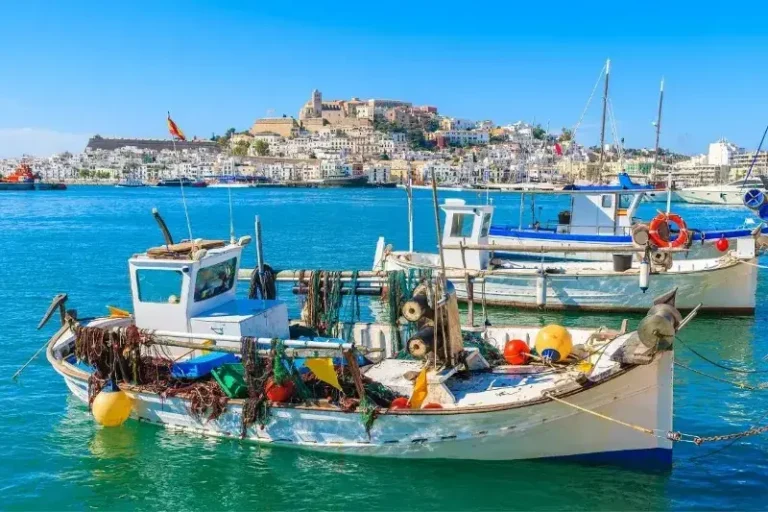Can Foreigners Buy Property In Colombia?
|
Are you an expat dreaming of owning a home in Medellín, a retiree eyeing beachfront property along Colombia’s beautiful coasts, or a business person considering a foreign investment? If so, the question, “Can foreigners buy property in Colombia?” might be at the top of your mind.
Fortunately, the answer is yes! Foreigners can buy property in Colombia. In this article, we’ll walk you through the process, from finding your dream property to closing the deal, with tips and suggestions for avoiding problems along the way.
Let’s make your property-owning dreams a reality.
Can Foreigners Buy Property In Colombia?
Foreigners are allowed to buy property in Colombia. The process is straightforward, with clear steps to follow whether you are from the United Kingdom, Europe, the United States, or other foreign countries.
Foreign investors, expats, and retirees can all purchase Colombian real estate, though you may need to get a tax identification number. Residency isn’t a requirement, but if you want to apply for residency, owning property can help you obtain a Colombian investor visa.
Let’s take a closer look at what steps you need to take to buy property in this South American country.
Step By Step Guide To Buying Property In Colombia As A Foreigner
Buying real estate in Colombia starts with finding the perfect property, often through the help of a real estate agent. Next, you’ll want the help of a real estate lawyer to complete due diligence and ensure there are no issues with the property or its title. Once that process is finished, it’s time to make an offer, sign a purchase agreement, make the down payment, and register the property in your name.
Knowing what to expect and what red flags to watch out for will make your experience buying property in Colombia smoother and more straightforward.
Find the Perfect Property
The first step is to decide which areas of Colombia you want to live in. Explore your locations of interest, talk to locals and expats in the area, and learn about the pros and cons of the region and neighborhood.
Consider safety, infrastructure, the availability of internet, water, and power, and access to healthcare, schools, and any other relevant points.
Find property listings through sites like Metrocuadrado or Fincaraíz, or work with a real estate agent.
The Colombian government doesn’t require real estate agents to hold a license, so it’s essential to research any agent you’re considering working with.
Follow these suggestions to find a good broker:
- Ask for recommendations in social media groups and expat forums
- Aim to get recommendations from expats who’ve purchased property in your location of interest
- Consider selecting agents who work with reputable international real estate companies
- Search for the agent online to see if they are legitimate and if they are featured in news stories
- Read reviews about the agent and their company
- Interview several agents to ask about their experience, rates, and specialties
Note that most real estate agents in Colombia charge sellers a 3% fee.
Things to look for in an agent:
- Honesty and professionalism
- Experience
- A strong network
- Expertise and local knowledge
- Good communication skills
- Attention to detail
- Bilingual
Finding an honest, experienced, and competent real estate lawyer is equally important. Follow a similar process to find a lawyer you can work with, or contact the Colegio de Juristas for qualified legal professionals.
Complete Due Diligence
Completing due diligence is one of the most critical steps in the process. During this stage, you and your lawyer will work together to make sure there are no problems with the property or title.
Visit the property in person and check for electrical and plumbing issues, mold, structural damages, etc. You may wish to hire an inspector to survey the property and help you determine its condition.
Meanwhile, your lawyer should complete an exhaustive ‘Estudio de Titulos’ to research the public deed and ensure that:
- The seller truly owns the property and has the right to sell it
- There are no debts or legal claims on the property
- All taxes have been paid
- Nothing illegal has happened on the property in the past
Typically, a lawyer will obtain the following documents during this process:
- Certificado de Tradición y Libertad – This is a history of the property
- Certificado de Paz y Salvo Predial – Stating that municipal property taxes have been paid
- Certificado de Paz y Salvo de Valorización – Verifies that all taxes related to property value increases have been paid.
Ask for English translations of these documents so you can check them yourself.
Resolving property issues in Colombia can be costly and time-consuming. Consider purchasing a different property if the one you are interested in has issues.
Make an Offer and Negotiate
Now that you’ve completed due diligence, it’s time to make an offer.
Here are some things to consider during this step:
- Check the real estate market to see what similar properties are selling for
- Be clear about what is included in the sale
- Use culturally appropriate negotiation techniques
- Aim for a 10-15% discount
- Some sellers try to charge foreigners more, so avoid revealing that you’re a foreigner early in the process.
Your real estate agent can gauge whether the seller is open to negotiation and help you come up with a reasonable offer or counter offer.
Sign the Purchase Agreement
Once the seller agrees to your offer, it’s time for your lawyer to draft a ‘Promesa de Compraventa’ or Purchase and Sales Agreement. This document often includes the following clauses:
Price and What is Included in the Sale
This should state whether appliances, curtains, furniture, storage, and parking are included. In some condo buildings, storage and parking have a separate title, and the owner can remove light bulbs, appliances, curtains, and anything else not part of the apartment. Be sure these are listed in the agreement if you want them included in the sale.
Down payment Amount
The down payment, or ‘anticipo’ secures the deal. It is typically 10-30% of the total price and is negotiable. Usually, this is paid right after signing the purchase agreement. The rest of the payment is generally made during the closing stage.
You must work with your lawyer to devise a purchase method and schedule that ensures both parties are treated fairly and not put at risk.
Tip: Ensure you have enough time to bring money into Colombia and get it legalized, a two to six week process.
Penalties
This clause, known as the ‘clausula penal,’ discusses what will happen if either party doesn’t proceed with the deal. Usually, if the buyer doesn’t proceed, she could lose the down payment. If the seller doesn’t proceed, he can be sued for the penalty amount (usually 10 to 20%).
Taxes and Administration Fees
This clause calculates the taxes based on when the property is purchased. Taxes are paid yearly, and administration fees are paid monthly. Both should be pro-rated.
Other
The purchase agreement should also state who will pay any outstanding taxes and mortgages, how any liens will be removed, and more, such as:
- a description of the property
- the identities of the parties
- a timeline of key events related to the sale
- Legal disclaimers
- Arbitration provisions
- The signatures of all parties
Make the Payment
Since Colombia has no escrow service, you must pay the seller directly. Many expats bring in money through a brokerage account.
The company in charge of the account often requires a copy of your passport, personal income tax returns, bank statements, and other documents that indicate where your funds are sourced. They typically will convert the funds into Colombian pesos for you and charge a fee for the service, as well as a 0.4% government tax.
Next, you must legalize your funds in Colombia. To do this, register your funds with the national bank, Banco de la República. This step can take 2 to 6 weeks or more.
Tip: Check the Colombian exchange rate here.
Close and Register the Sale
Your property purchase is almost complete! All the parties will meet at the Notary Public, or ‘Escritura Pública’ to sign the public deed and pay the transaction fees, taxes, and registration.
This process can take about 3 hours. Often, you can complete this whole stage at the notary office, but sometimes, all the parties may need to go to a bank for the final funds transfer.
Once the notary signs the deed, it is submitted to the Registration Office, where you’ll be registered as the formal owner. This can take about 10 to 20 business days to complete. At the end of that time, you’ll receive a new ‘Certificado de Tradición y Libertad,’ and the property is yours.
Is Property Expensive In Colombia?
Property values vary depending on the region, city, and neighborhood of Colombia. However, prices are relatively low compared to Europe and North America.
According to Numbeo, buying an apartment in Medellín will cost about 65% less than buying an apartment in Denver.
Cartagena, a prominent tourist destination, costs about 46% less than Denver, while Santa Marta, Colombia, costs 77% less.
Check out this chart shared by Wise to see the average price per square foot in several Colombian locations:
Renting In Colombia
If you aren’t able to buy a property or want to check out an area before committing long-term, renting is a good solution.
Since rental scams are a thing in Colombia, consider getting an Airbnb for when you arrive, then networking with expats and locals to find reputable rentals. You can also work with local real estate agents to find a suitable rental.
To rent in Colombia, you will likely need:
- a copy of your passport or Colombian ID
- a scanned copy of your last entry stamp
- visa documentation
- bank statements and a copy of your work contract to show you can afford the rent
- 1 or 2 fiadores (guarantors) who own property and agree to pay your rent if you cannot do so.
Finding a fiador can be tricky, but there are a few ways around it:
- Some real estate agencies will lease apartments without a fiador if you pay three to six months in advance
- Some companies will act as your fiador for a price
- If you deal directly with a property owner rather than a rental agency, you may be able to negotiate a contract without a fiador.
Colombia Real Estate FAQs
Is buying real estate in Colombia a good investment?
Colombia is a relatively stable country with a growing economy. Property values continue to grow, making it a good country for real estate investments.
Can I buy a house in Medellin, Colombia?
Yes, foreigners and non-residents of Colombia can buy a house in Medellín, Colombia. You may need to obtain a Colombian tax ID and work with a real estate lawyer to ensure you meet all the legal requirements.
Do Colombians pay property taxes?
Yes, Colombians pay annual property taxes. The rate varies depending on the type and location of the property and ranges from 0.1% to 0.6%.
Conclusion
So, can foreigners buy property in Colombia? Absolutely. Owning property is not only possible but can also be a rewarding investment or a gateway to residency.
Colombia’s bustling historic cities, sweeping landscapes, and affordable real estate prices offer exciting opportunities for expats, retirees, and investors alike.
By following the steps outlined in this guide, from finding a reliable real estate agent and lawyer to completing due diligence and closing the deal, you’ll be well-prepared to navigate the property-buying process smoothly.
Hello and Welcome!

We started our family travel blog in hopes of supporting other families move abroad and travel the world. Through straightforward, sincere and supportive information we hope to provide a reliable guide for those moving overseas with a family and traveling the globe.





